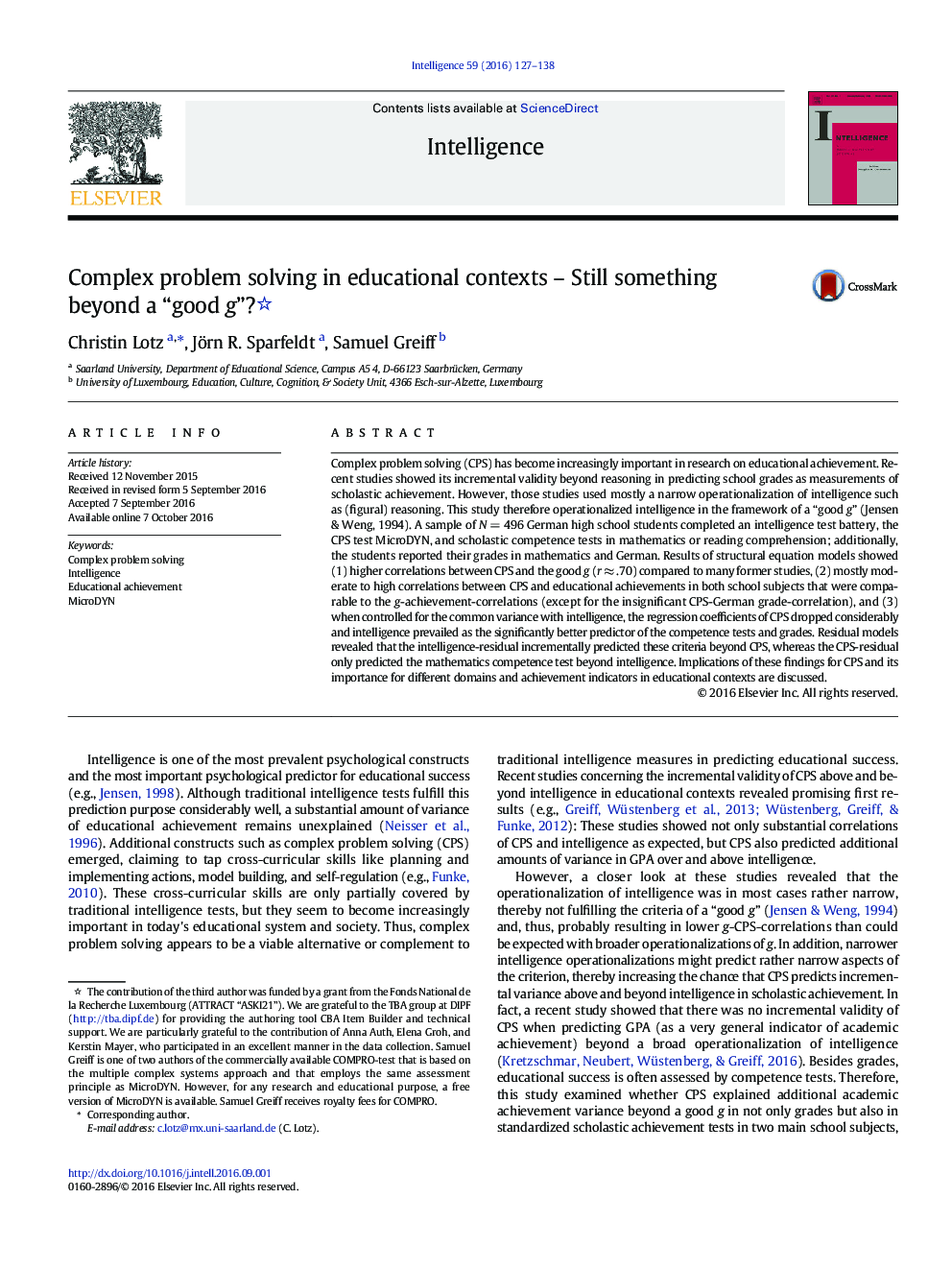| کد مقاله | کد نشریه | سال انتشار | مقاله انگلیسی | نسخه تمام متن |
|---|---|---|---|---|
| 5042180 | 1474257 | 2016 | 12 صفحه PDF | دانلود رایگان |

- Complex problem solving (CPS) and intelligence (g) correlated substantially (r â 0.70).
- Correlations of g and CPS with educational success were of comparable magnitude.
- Controlling for the common variance with g, CPS regression coefficients dropped.
- Intelligence explained incremental variance beyond CPS in all criterion variables.
- CPS explained incremental variance beyond g only in mathematics competence test.
Complex problem solving (CPS) has become increasingly important in research on educational achievement. Recent studies showed its incremental validity beyond reasoning in predicting school grades as measurements of scholastic achievement. However, those studies used mostly a narrow operationalization of intelligence such as (figural) reasoning. This study therefore operationalized intelligence in the framework of a “good g” (Jensen & Weng, 1994). A sample of N = 496 German high school students completed an intelligence test battery, the CPS test MicroDYN, and scholastic competence tests in mathematics or reading comprehension; additionally, the students reported their grades in mathematics and German. Results of structural equation models showed (1) higher correlations between CPS and the good g (r â .70) compared to many former studies, (2) mostly moderate to high correlations between CPS and educational achievements in both school subjects that were comparable to the g-achievement-correlations (except for the insignificant CPS-German grade-correlation), and (3) when controlled for the common variance with intelligence, the regression coefficients of CPS dropped considerably and intelligence prevailed as the significantly better predictor of the competence tests and grades. Residual models revealed that the intelligence-residual incrementally predicted these criteria beyond CPS, whereas the CPS-residual only predicted the mathematics competence test beyond intelligence. Implications of these findings for CPS and its importance for different domains and achievement indicators in educational contexts are discussed.
Journal: Intelligence - Volume 59, NovemberâDecember 2016, Pages 127-138